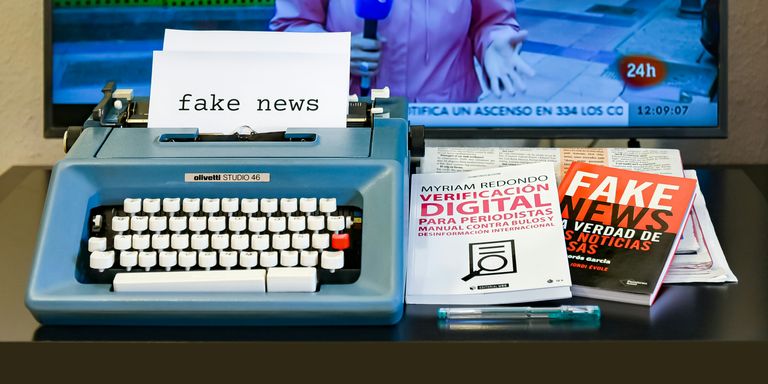False News: What Is It?
False information can now be published as fact by anyone with an agenda thanks to social media. Fake news can be posted by people who are paid to do so on behalf of others, or it can be published automatically by automated programs, sometimes known as bots. There are as many reasons as there are differing viewpoints for why people fabricate and disseminate false information.
The Hazards of Misinformation
A lot of fake news can be malevolent and even harmful, even while some of it may appear harmless or to be an amusing attempt. The goal of fake news is to influence people's attitudes, beliefs, or perceptions in order to influence behavior in the long run. This implies that if you fall victim to believing false information, someone else's agenda is influencing your thoughts and choices. Additionally, disseminating and publishing false information may have legal repercussions in several regions of the world.

Identifying False News
So, how do you guard against false information? The best strategy is to believe anything only after you have confirmed it.
Examine the Reference: Contemplate the news's true source. You can't trust a local blog with the same authority as a large academic publication. What values does the source uphold? What goals do they have?
Complementary References: Examine the sources that the article cites. Do they have credibility? Are they even real?
Use a Variety of Sources: Don't depend solely on one article. Your ability to make appropriate conclusions increases with the amount of reading you do from a variety of sources. Take into account a variety of sources and viewpoints as well, such as news from various nations or writers with various experiences.
Examine the Writer: Who is the writer? Look into them to find out whether they are a reputable writer, how they are seen in the community, if they have a particular goal, or if the person writing is actually them. Do they write on topics related to their expertise?
Verify the Date: Verify if the date is current and that this isn't just an old tale that has been repeated.
Remarks: Take caution while reading comments made in reaction to an article, video, or post, even if it is authentic. Links and comments left in response are frequently automatically generated by bots or by individuals paid to distribute inaccurate, misleading, or deceptive content.
Examine Your Preferences: Be impartial. Could your reaction to the content be influenced by your own biases? One common issue facing people is that we tend to read just those sources that validate our preexisting beliefs. Take on a challenge by reading from sources you wouldn't often review.
Examine the Funding: Advertisers and sponsors can have an impact on an article or source, even in respectable media. Verify whether the article has funding and, if so, from whom.
Carefully repost: False information is disseminated by believers by reposting, retweeting, and other means in fake news. If you have doubts about an article's veracity, reconsider or refrain from forwarding it to others.
In summary
In today's hectic social media landscape, fake news is everywhere. If you are not careful, you could end up believing it and acting on it. Take the time to follow these basic guidelines to ensure that your decisions are well-informed and supported by the facts.

Upvoted. Thank You for sending some of your rewards to @null. Read my last posts to make sure that BLURT burning is profitable for you. Before using this bot please make sure your account has at least 100 BP. Get more BLURT:
@ mariuszkarowski/how-to-get-automatic-upvote-from-my-accounts@ blurtbooster/blurt-booster-introduction-rules-and-guidelines-1699999662965@ nalexadre/blurt-nexus-creating-an-affiliate-account-1700008765859@ kryptodenno - win BLURT POWER delegation